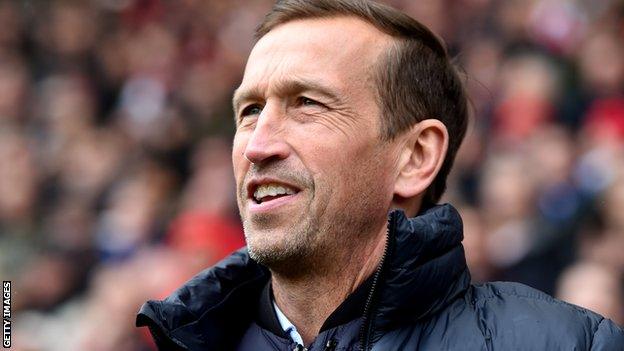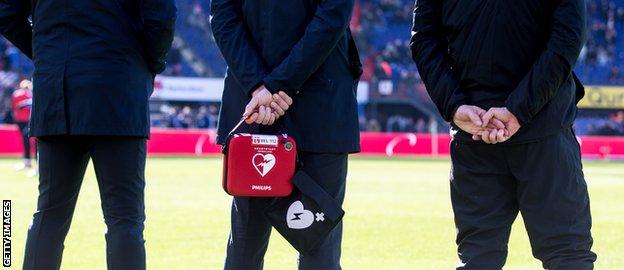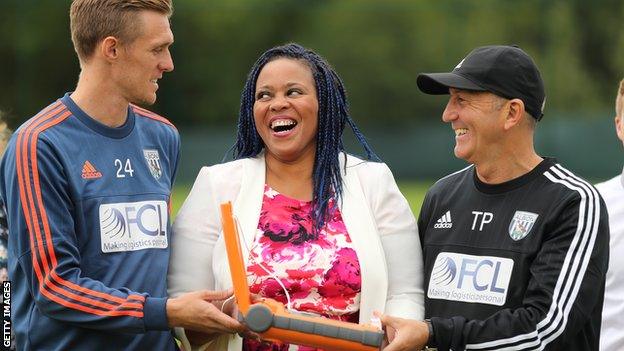Justin Edinburgh: Family seek defibrillator law change to help other cardiac situations
- Published

Justin Edinburgh died of cardiac arrest at the age of 49
The family of Justin Edinburgh want to change the law regarding the access to defibrillators at sports facilities, as part of the work of the JE3 Foundation.
Edinburgh, who led Leyton Orient back to the English Football League last season, died earlier this month from cardiac arrest, aged 49.
English law does not currently regard defibrillators as compulsory equipment.
"We are campaigning to get the law changed, call it Justin's Law," son Charlie Edinburgh told BBC Essex.
"It would keep his legacy alive and it would become something that has to be in place.
"Whatever sport you're playing, the last thing you think of when you approach the first tee is - am I safe? You want to play the best I can or whatever, you don't think about whether there's a defibrillator around.
"That is something we are going to push hard to make sure is in place across all relevant places."
Raising awareness and survival rates

Medical staff at a Dutch game between PSV and Feyenoord were equipped with a defibrillator
The family have set up the Justin Edinburgh 3 Foundation with a view to spreading information about heart and cardiac issues, as well as practical work such as improving facilities.
With advice and guidance from the cardiologist who treated Edinburgh, Thomas Keeble, the family hope the foundation can have a positive impact.
"If you look at the survival rate of cardiac arrest in the UK, it's only 9%," Charlie Edinburgh continued.
"In some areas across the world, such as Norway, and Seattle in America, their survival rate is 25%. That's just because of the education they're promoting around this terrible disease.
"If we can increase the survival rate by just 5% for people in the UK with the JE3 Foundation, that's something we see as a benefit."
Defibrillators key to boosting such rates

West Brom players purchased a defibrillator for a club where a young fan also died from a cardiac arrest
Cases such as that of rugby league player Danny Jones, who died during a game after cardiac arrest, have led to charity work, funding the distribution of defibrillators at sports clubs.
The Edinburgh family are hoping to add to the progress made by organisations such as the British Heart Foundation and others with their fundraising.
"Dad was one of the unlucky ones," Charlie said. "We'll never accept it or know why, but if we can change someone else's situation from being unlucky to lucky because they had the equipment or the relevant qualified people, that would help. We want to make sure that there is funding out there.
"Heart attack and cardiac arrest are different things, but the main thing in both of those situations is defibrillators.
"They're not cheap by any stretch of the imagination, but if people contribute £5 to any charity that does support being able to provide defibrillators they will see how important that kit can be to somebody's life."
Coping with the grief
It is just 18 days since it was confirmed Justin Edinburgh had passed away, after he was admitted to the Essex Cardiothoracic Centre in Basildon for treatment.
Since then, the many tributes, fundraising efforts and shows of support have been a great source of comfort to the family, still coming to terms with their loss.
"I don't think we quite realised how loved and highly regarded dad was," son Charlie added.
"It's really touching to be honest, the people that have reached out and sent their regards and well-wishes to us. As you can imagine, it's a very up and down period for us."